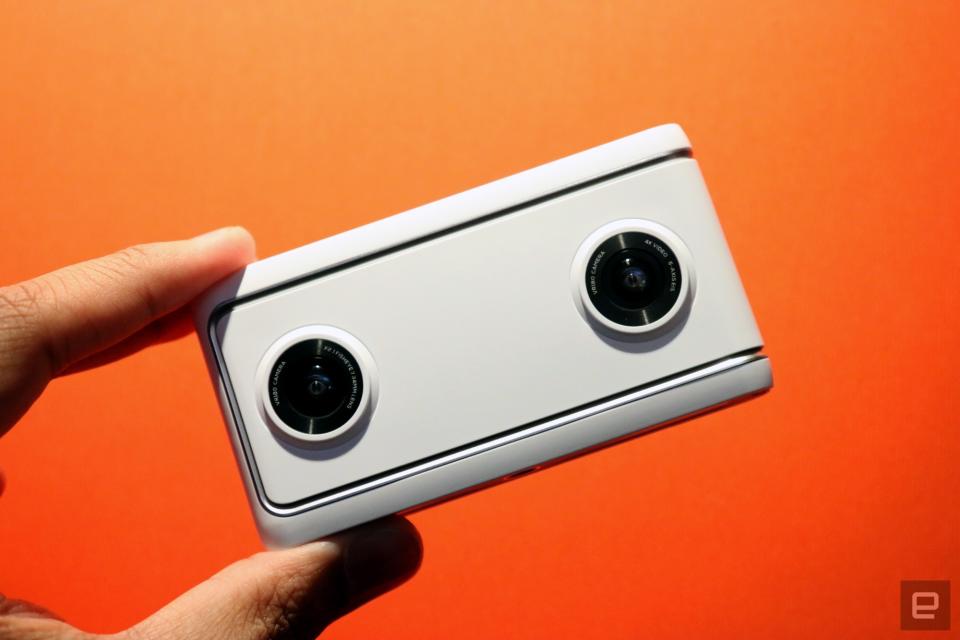Google unveils point-and-shoot VR cameras from Lenovo and Yi
They make it that much easier to capture VR180 footage.
Last year at VidCon, YouTube CEO Susan Wojcicki revealed VR180, a video format that just shows you stuff in front of you, rather than behind you. When viewed in a VR headset, the videos are especially immersive -- think of it as a giant field of view that stretches wider and taller than your standard IMAX screen so much so you can actually feel like you're in the room. But in order to watch such VR content, one also needs to create it. So at CES 2018, Google is partnering with Lenovo and Yi Technology to announce two new VR180 cameras: the Lenovo Mirage Daydream and the Yi Horizon VR180.
Both cameras are designed to essentially be point-and-shoot devices and, from my brief time with both of them, they look very much alike. They're both slim, compact, with dual 13-megapixel fisheye lenses each, as well as a 2.2-inch touch screen on the back. The Mirage Camera comes in white while the Yi Horizon is clad in black. One interesting part about the Horizon is that the display flips around, so you can take a VR180 selfie.
They can both capture images, record video as well as livestream video directly to YouTube Live. The content can be viewed on a standard display of course, but it's really meant to be used with a VR headset. And since these cameras have WiFi built-in, shipping those captured-media files to Google Photos or YouTube is relatively easy. Both cameras work with Google's VR180 companion app to upload and view content.
The Mirage Camera and the Yi Horizon are Google's first VR180 cameras for the consumer market. There's an existing Z Cam K1 Pro for professionals, while companies like Panasonic and LG have signed on to release more VR180 cams in the future. Panasonic also announced recently that it'll be building VR180 support into their GH5 cameras with an add-on.
As for price, well, they're yet to be determined at this point. Lenovo did say that its camera will be priced under $400, and both cameras are set to ship later this year.














